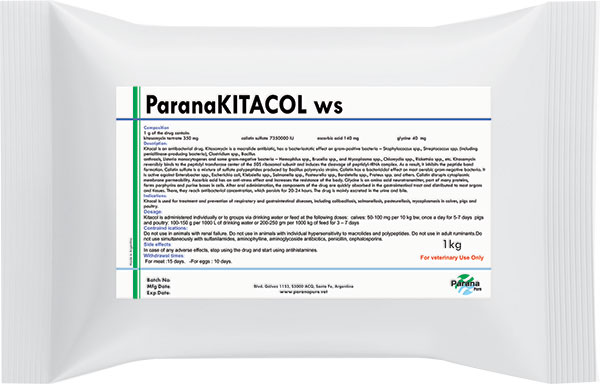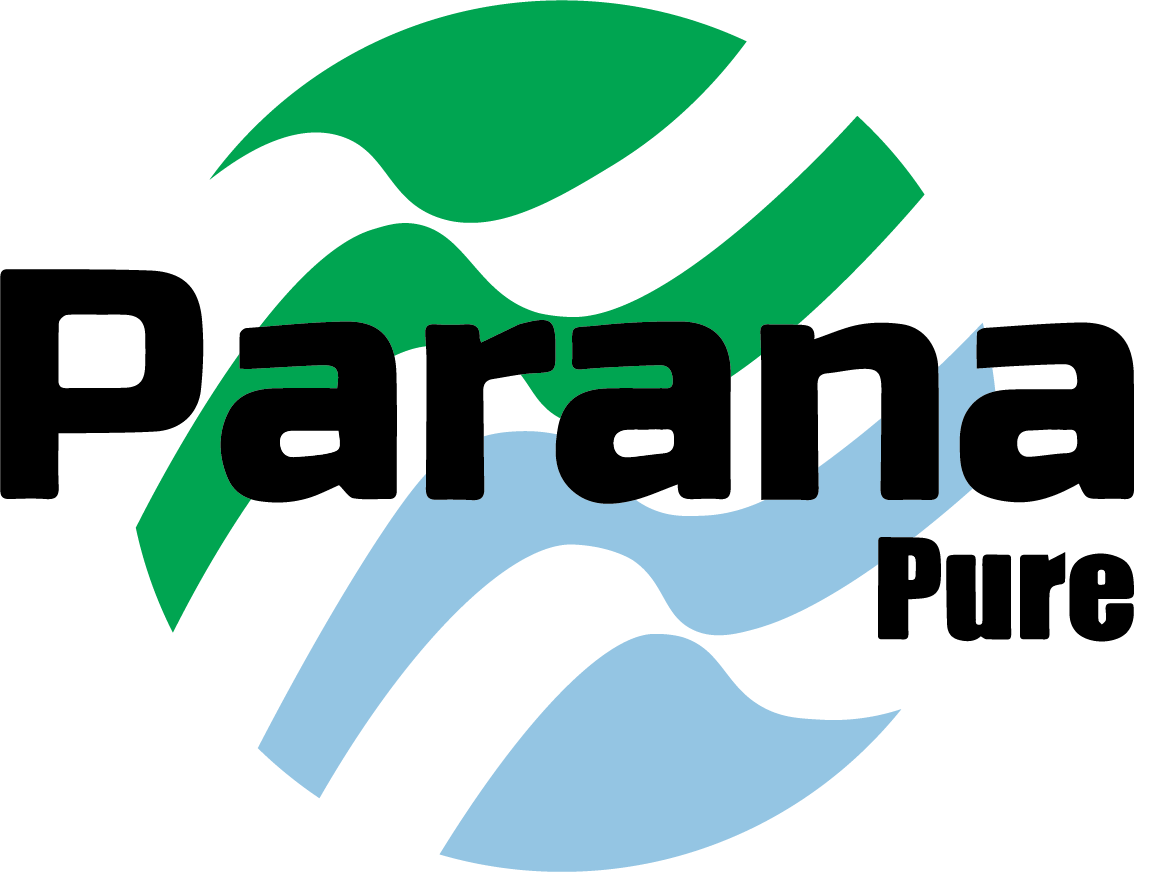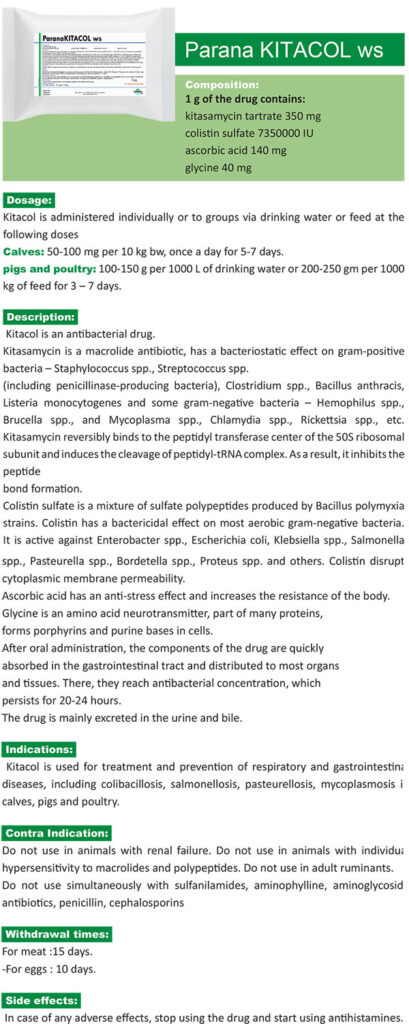
Parana KITACOL ws
1 g of the drug contains:
kitasamycin tartrate 350 mg
colistin sulfate 7350000 IU
ascorbic acid 140 mg
glycine 40 mg
Dosage:
Kitacol is administered individually or to groups via drinking water or feed at the
following doses
Calves: 50-100 mg per 10 kg bw, once a day for 5-7 days.
pigs and poultry: 100-150 g per 1000 L of drinking water or 200-250 gm per 1000
kg of feed for 3 – 7 days.
Description:
Kitacol is an antibacterial drug.
Kitasamycin is a macrolide antibiotic, has a bacteriostatic effect on gram-positive
bacteria – Staphylococcus spp., Streptococcus spp.
(including penicillinase-producing bacteria), Clostridium spp., Bacillus anthracis,
Listeria monocytogenes and some gram-negative bacteria – Hemophilus spp.,
Brucella spp., and Mycoplasma spp., Chlamydia spp., Rickettsia spp., etc.
Kitasamycin reversibly binds to the peptidyl transferase center of the 50S ribosomal
subunit and induces the cleavage of peptidyl-tRNA complex. As a result, it inhibits the
peptide
bond formation.
Colistin sulfate is a mixture of sulfate polypeptides produced by Bacillus polymyxia
strains. Colistin has a bactericidal effect on most aerobic gram-negative bacteria.
It is active against Enterobacter spp., Escherichia coli, Klebsiella spp., Salmonella
spp., Pasteurella spp., Bordetella spp., Proteus spp. and others. Colistin disrupts
cytoplasmic membrane permeability.
Ascorbic acid has an anti-stress effect and increases the resistance of the body.
Glycine is an amino acid neurotransmitter, part of many proteins,
forms porphyrins and purine bases in cells.
After oral administration, the components of the drug are quickly
absorbed in the gastrointestinal tract and distributed to most organs
and tissues. There, they reach antibacterial concentration, which
persists for 20-24 hours.
The drug is mainly excreted in the urine and bile.
Indications:
Kitacol is used for treatment and prevention of respiratory and gastrointestinal
diseases, including colibacillosis, salmonellosis, pasteurellosis, mycoplasmosis in
calves, pigs and poultry.
Contra indications:
Do not use in animals with renal failure. Do not use in animals with individual
hypersensitivity to macrolides and polypeptides. Do not use in adult ruminants.
Do not use simultaneously with sulfanilamides, aminophylline, aminoglycoside
antibiotics, penicillin, cephalosporins
Side effects:
In case of any adverse effects, stop using the drug and start using antihistamines.
Withdrawal times:
For meat :15 days.
-For eggs : 10 days.

